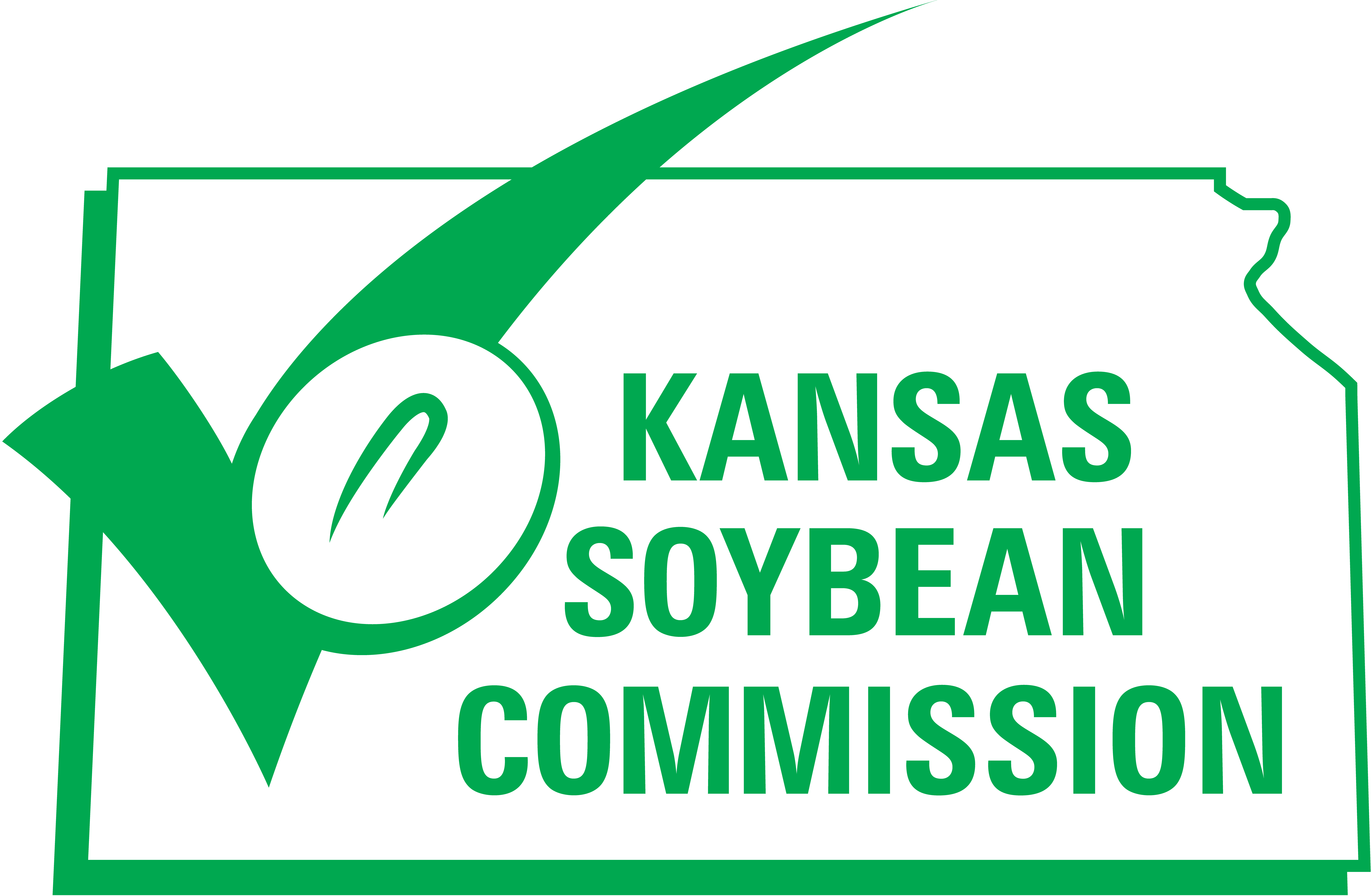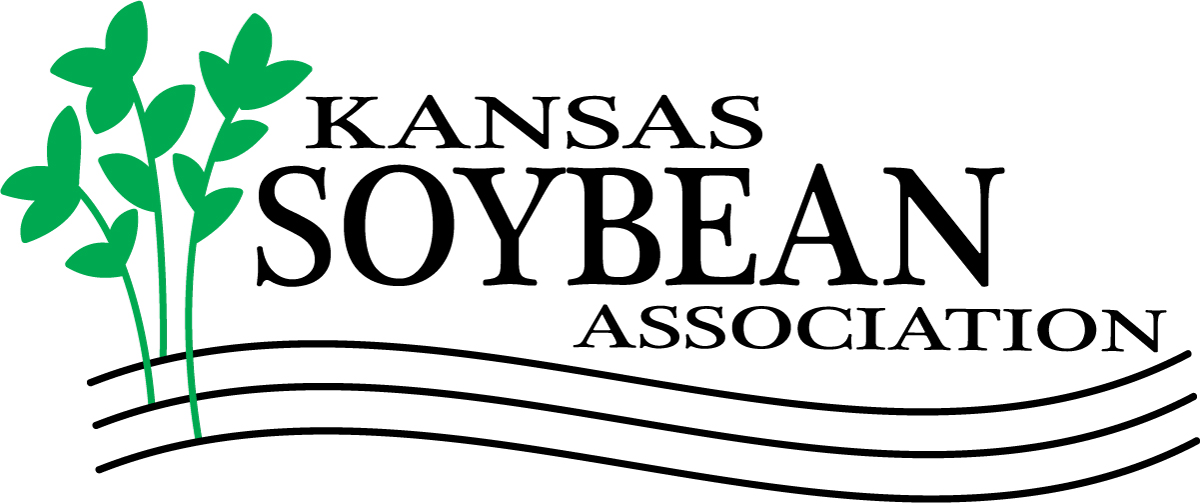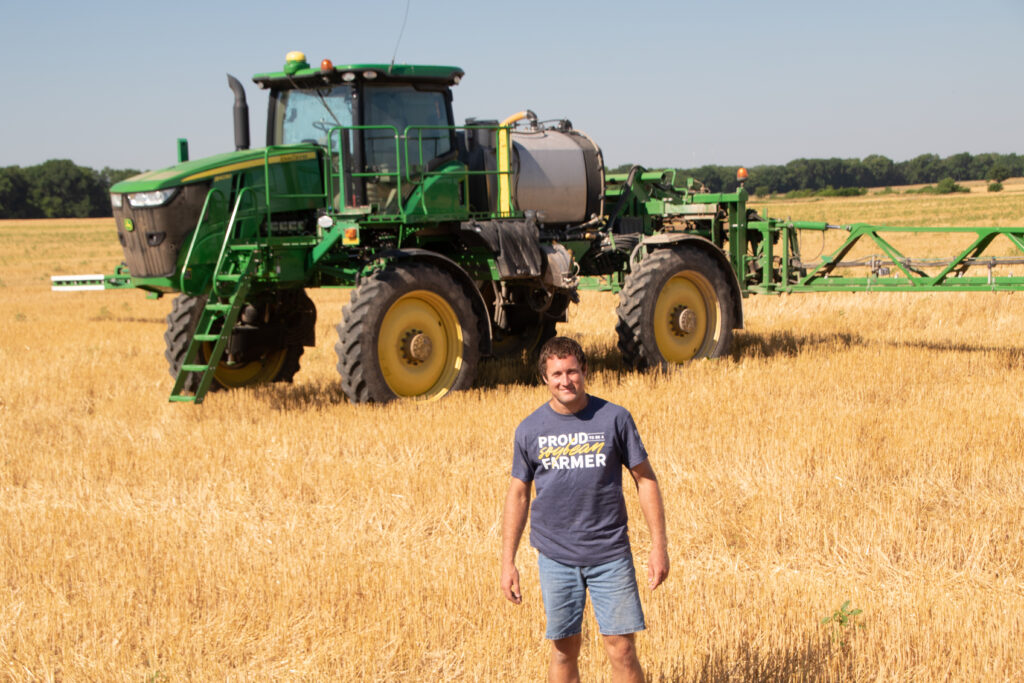Bellar partnership balances strengths
Each agricultural operation is unique and provides opportunity for producers to learn from one another. Luke Bellar, Mound Valley, and his brothers Ben and Ethan Bellar, Howard, entered an equal thirds partnership for their row crop operation. The Bellar Brothers raise soybeans, corn and soft winter wheat in southeast Kansas.
Lessons off the family farm
Luke earned a bachelor’s of science degree in Agribusiness from Fort Hays State University in May 2015. After completing his degree, he returned to his family’s operation to manage their finishing hog operation. Luke bought his first feeder pigs in the fall of 2015 and rented the barns from his dad. After approximately a year, he made the tough decision to find work on another operation to further his knowledge.
Luke saw an ad in the High Plains Journal for a farmhand job in Plymouth, Nebraska, on a row crop and finishing hog operation and, after a visit, he accepted the position and started in March 2017.
“I thought I knew it all when I moved there, but I didn’t, I learned so much,” Luke says. “It was a very different twist to my normal southeast Kansas farm style and it was really cool to see how irrigation works.”
Luke notes that not only did he learn a lot about farming, he developed skills on building relationships.
New beginnings
While being in Nebraska instilled knowledge and numerous life-long skills, Luke knew he was ready to take what he learned and move closer to home after a year and a half.
Luke’s parents attended a business trip in Mexico, and what came of it altered his life. While there, his parents met a Mound Valley farmer who wanted to retire. Over the summer and fall of 2018, Luke did many interviews with the retiring farmer to line out agreements before leaving his Nebraska job and moving back to Kansas.
The original plan was for Luke to be an employee for two years and then move into a 50/50 partnership for the next five years and after seven years, he would own 100% of the operation. Things quickly changed after the retiring farmer had medical issues and the agreements had to be updated.
The farmer’s wife was heavily involved in the operation and continued to stay involved as they reached a new agreement. For the first two years, the wife remained the main decisionmaker on inputs and grain marketing and Luke was doing the physical work, planting, spraying, combining and hauling grain.
Luke rents the land, bins and barns, but is now the sole decision maker on the operation.
All equipment was priced in January 2021 and a payment plan was outlined to spread out over the next six years to help fully transition ownership.
“I grouped equipment pieces together to identify an agreed upon price and made these decisions based on when I thought I would trade in the equipment for John Deere,” Luke says. “I knew I wanted to trade in the planter tractor in year three, so I made that the payment in year two so I could physically own the equipment and not just own it on paper.”
Family Business
The Bellar Brothers partnership was formed with long-term thinking in mind. All three started out equally owning nothing and over the past four years, they have built equity in the Mound Valley farm. Their parents’ long-term goal was for the three boys to farm their place, but the partnership was formed so all felt they were treated fair and equal.
One factor behind the partnership was to set them up for success for succession planning when the time comes.
Having a partnership mitigates some of the risk if any of the brothers got into a sticky situation, and it would protect the farm. Once their dad retires, the oldest and youngest brother will assume active manager positions at the Howard operation and Luke will continue his role as active manager in Mound Valley.
Luke states that having 70 miles between the two operations lowers the chance of both farms having crop loss. Since the Bellar Brothers are a row crop only farm and do not have livestock, the distance between farms is a form of validation that if one crop doesn’t do good, the other most likely will do good.
“We can’t share equipment, but the advantages outweigh the disadvantages,” Luke says.
When asked if the Bellar Brothers used any educational material as they formed the partnership, Luke jokingly responded that him and his brothers aren’t big readers, and they just want to do it. In all seriousness, it came down to what worked best for them. Luke says they did explore how others did it, but the key was to have transparent conversations and a lot of give and take. When it came down to the details, each individual would jot down ideas and trade papers, then find middle ground to agree upon.
“The partnership helped us all have a clear mind in the decisions; we all came in with nothing and had the chance to succeed or fail at the same rate,” Luke says. “Doing it early was the right move and I would do it again.”
Looking ahead
When posed with the question of why he enjoys farming, Luke says, “When I was a kid, I wanted to be a lot like my dad, and I still very much do. I have seen his success and I do my best to mimic him.”
Luke’s father plans to retire within the next couple years, meaning they will soon start the process of succession planning for his operation and to ensure the partnership is still working.
The new Bartlett soybean crush plant and potential Azure renewable jet fuel plant could bring enormous potential to Luke and his brothers.
Luke states the chicken markets in Arkansas and Oklahoma help drive southeast agriculture, by serving as an easy home for soybeans and corn. He hopes the plant will produce large volumes of aviation fuel using Kansas-grown soybeans. He is optimistic that the addition of this plant will help promote the use of locally grown crops and drive rural agriculture.
“Without the work of the Kansas Soybean Association and other organizations pushing for higher renewable fuels volumes in the legislature, there would not be a demand for more crush plants,” Luke says. “We are fortunate to have acquired one in southeast Kansas.”


